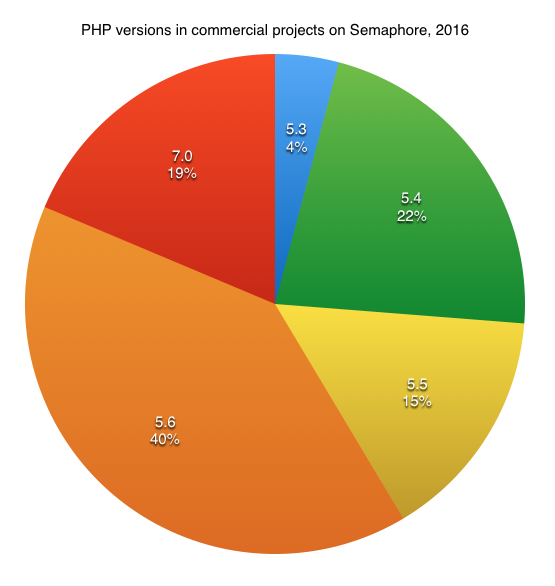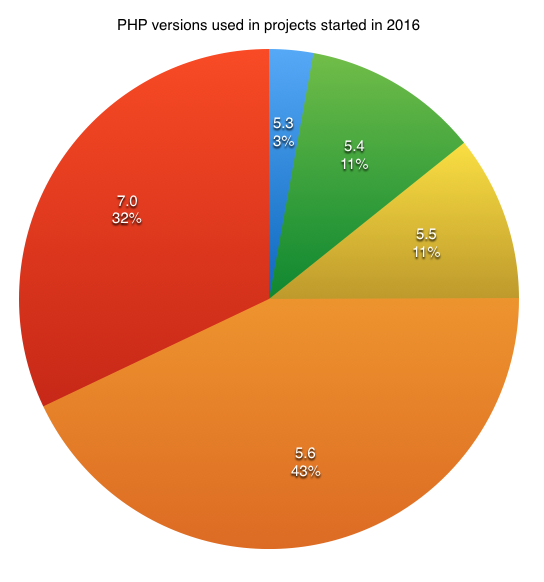As in earlier reports on other languages (see Ruby, Node.js, Python), today we’re sharing data from Semaphore about usage distribution across versions of PHP in active private projects.
More than 80% of commercial PHP projects are on 5.x, with 5.6, which was released two years ago, being the leading choice.
PHP 7.0 was released less than a year ago, in December 2015. And if we look at just the projects which have been added on Semaphore in 2016 — and assume that most of them are newly started — we see that a third of new projects are choosing PHP 7.0.
It’s worth noting that versions 5.3, 5.4 and 5.5 have reached end of life and are no longer receiving any security updates. So if you’re on one of those versions, we strongly recommend that you move to 5.6 which will be maintained until the end of 2018. For more details on PHP release plans, refer to the official supported versions page.
Another factor to consider is version support on hosting platforms. PHPVersions.info provides an extensive overview.
Semaphore CI/CD continues to provide all versions mentioned in this report preinstalled on its default platform.
This is our first annual report on PHP; next year we’ll be able to observe changes over time.
What are your thoughts on working with and choosing among different PHP versions? Post your comments below.
To make testing in PHP easier for you, we regularly publish tutorials on TDD, BDD, deployment, and using Docker with PHP. Read our tutorials and subscribe here.

